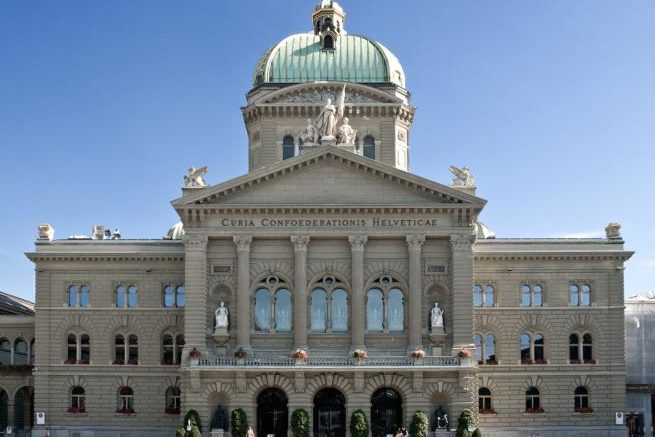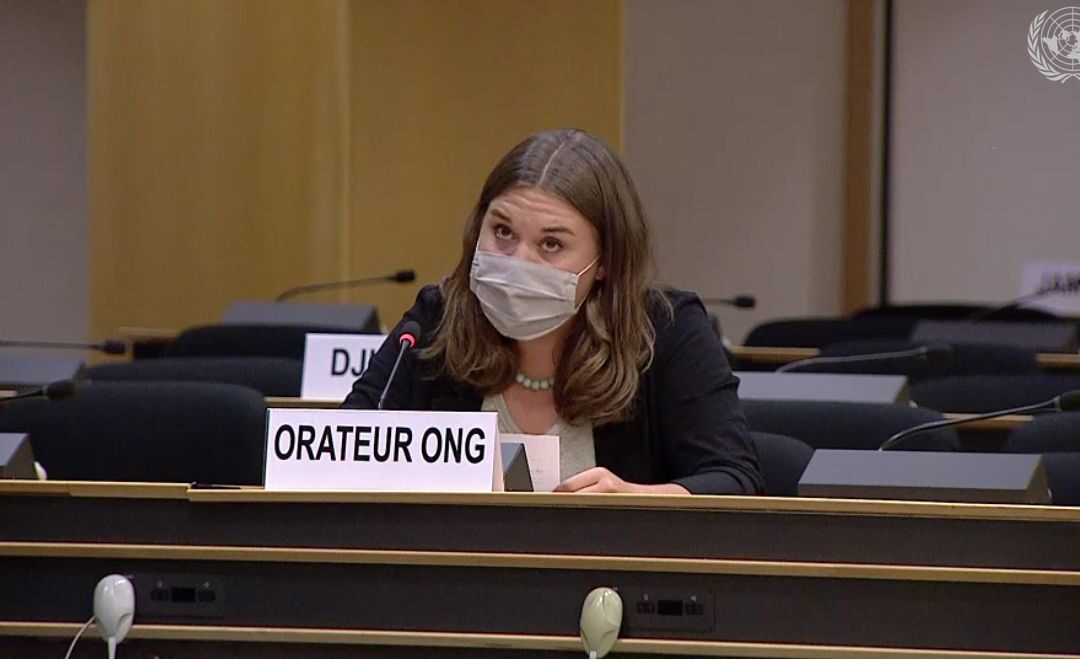
Jun 18, 2020 | Advocacy, Non-legal submissions
At the UN Human Rights Council, the ICJ today welcomed a pending resolution that would create an international Fact-Finding Mission on Libya.
The statement read as follows:
“The International Commission of Jurists welcomes the oral update by the High Commissioner for Human Rights on the situation in Libya.
The ICJ is seriously concerned by the escalation of conflict in Libya and the increasing number of violations and abuses of international law including unlawful killings and attacks on civilian objects committed since this session was suspended in March. Just last week, at least eight mass graves were found, mainly in Tarhuna, in which the bodies of women and children were found.
The ICJ welcomes the High Commissioner’s recommendation that the Human Rights Council establish an international investigative body and calls on the Council to adopt the resolution tabled by Libya establishing a Fact-Finding Mission to investigate and preserve evidence of violations of international human rights law and international humanitarian law committed by all parties in Libya.[1] The ICJ calls on States to ensure the Fact-Finding Mission has at least one full year to complete its work.
As the Berlin Conference conclusions stressed,[2] accountability for gross human rights violations must be a key component of the political process in Libya. States must increase efforts to guarantee accountability remains front and centre in all negotiations on the future of Libya and provide full support including cooperation and resources to the Fact-Finding Mission for Libya once established.”
[1] A/HRC/43/L.40.
[2] https://www.bundesregierung.de/breg-de/aktuelles/the-berlin-conference-on-libya-1713868.
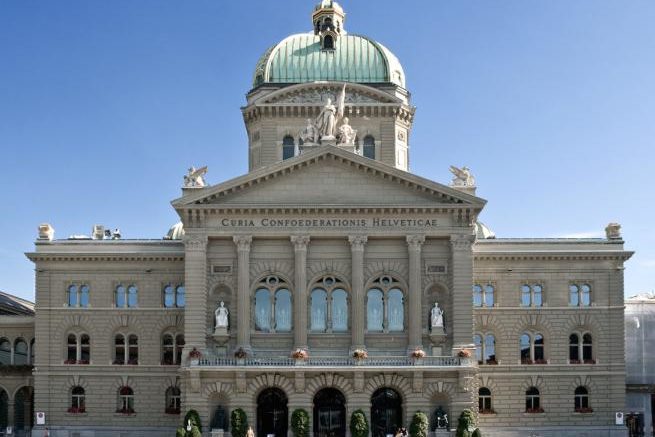
Jun 18, 2020 | Advocacy, Open letters
The Swiss Section of the ICJ sent today to the Swiss Parliament (National Council) a letter warning that, if approved, the current Draft Federal Law on Police Measures against Terrorism, tabled before them would clash with the country’s obligations under international human rights law. The ICJ supports this initiative of its Swiss Section.
The letter outlines several key concerns with the legislative proposal that could be used to unduly restrict aspects of freedom of expression, the right to liberty, and the rights of the child , in contravention of international law guarantees.
The National Council holds today a crucial discussion on the draft legislation.
Switzerland-Anti terrorism law-Advocacy-2020-GER (the full letter, in German, PDF)
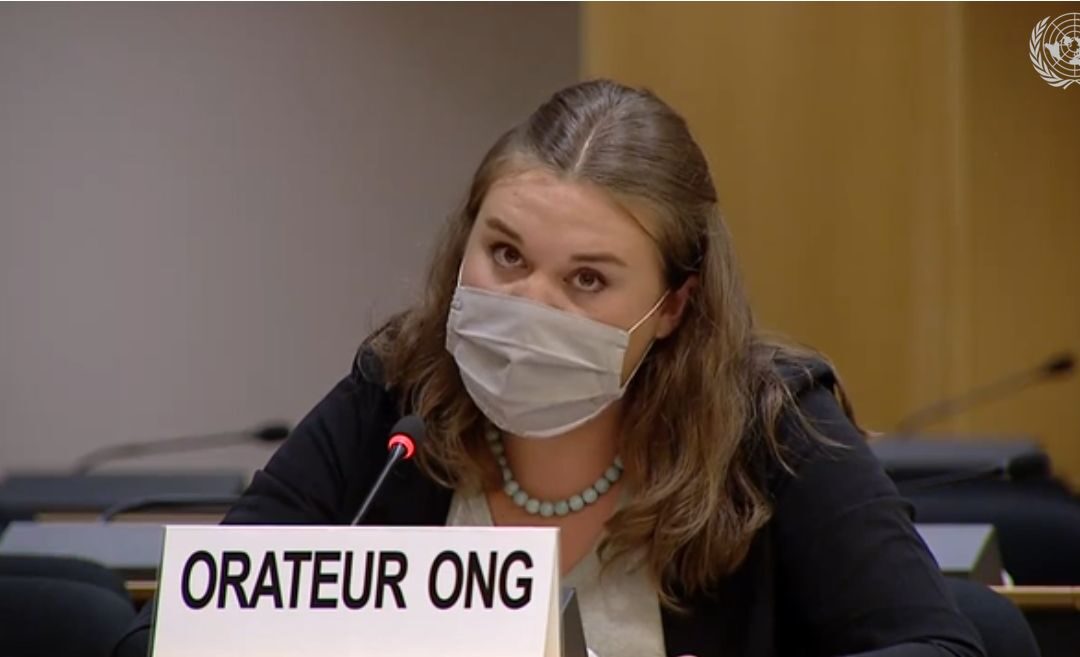
Jun 18, 2020 | Advocacy, Non-legal submissions
Speaking at the UN Human Rights Council in Geneva today, the ICJ urged action on excessive use of force, including unlawful killings, disproportionately targeting people of African descent and other minorities, by police throughout the United States of America, as well as in other countries.
The statement, delivered during an urgent debate on “current racially inspired human rights violations, systemic racism, police brutality and the violence against peaceful protest” that was requested by African countries, read as follows:
“Black lives matter.
The International Commission of Jurists (ICJ) condemns widespread incidents of unlawful and unnecessary use of force, including lethal force, by police throughout the United States of America, disproportionately targeting people of African descent and other minorities.
Many jurisdictions in the United States disregard, in law and in practice, universal standards including under the International Covenant on Civil and Political Rights and the UN Basic Principles on the Use of Force and Firearms by Law Enforcement Officials. These incorporate the requirements of proportionality and necessity and affirm that lethal force may only be used when strictly unavoidable to protect life. The ICJ is also concerned that doctrines of “qualified immunity” in practice result in impunity for extrajudicial killings and other serious human rights violations by police. The UN Human Rights Committee and the Committee against Torture, among others, have already called on the US to address these deficiencies in meeting their international legal obligations.
The United States is not alone in such abusive and racially discriminatory practices, which plague countries on every continent. While the Council is rightly giving long overdue attention to the United States, this must not serve as an excuse for any other State to fail to acknowledge and address similar violations within their own jurisdictions.
The ICJ supports calls for an independent international mechanism to address systematic racism in law enforcement in the United States and elsewhere.”
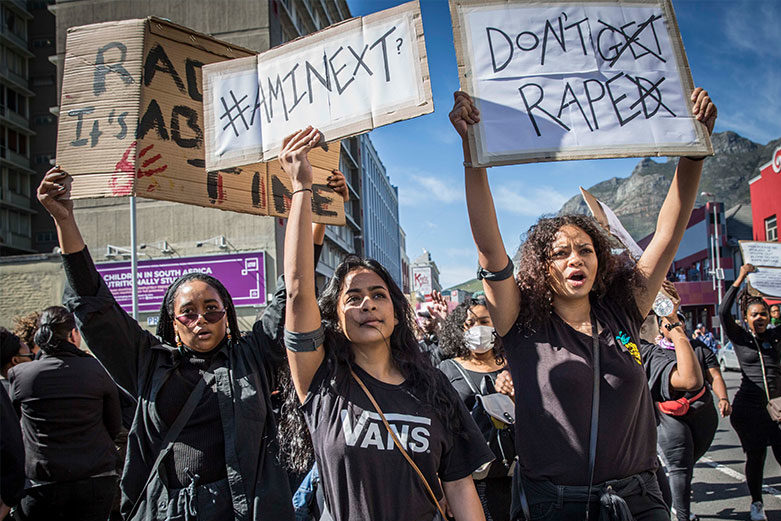
Jun 17, 2020 | Feature articles, News
While reports suggest a decrease in crime during lockdown due to restricted movement, violence against women, including gender-based violence (GBV), continues unabated, and has likely worsened throughout Africa, replicating global trends in this regard.
Africa has a serious GBV crisis, which domestic legislative frameworks and accountability mechanisms have failed to fully address.
Various factors contribute to the increasing incidence of GBV in Africa. These factors are facilitated by the failure of States to adequately discharge their obligations to protect persons from gender based violence, through legal reform and administrative actions.
The issues manifest in gender insensitive actors and institutions that administer justice, impunity for abuses, and limited capacity of justice actors to properly handle cases due to lack of training and resources.
There are also challenges in issuance of restraining and protection orders. All these problems are reinforced by a widespread lack of willingness to recognize, understand and engage with women’s rights by State actors.
In Africa, more than one in three women (36.6%) report having experienced physical, and/or sexual partner violence or sexual violence by a non-partner. Studies have also found that the highest prevalence of child sexual abuse is in Africa.
This GBV crisis in Africa has been worsened by the coronavirus pandemic, which has contributed to a surge in GBV. The pattern of rape, sexual violence, and killing of women continues to spread across the continent, even during this health crisis.
On 27 May, the news of the rape and killing of a 22-year-old student while she studied in an empty church in Nigeria sparked outrage and protests in many parts of the country.
In South Africa, the body of 28-year-old woman Tshegofatso Pule was found on 8 June. She had been stabbed and hanging from a tree; she was eight-months pregnant at the time.
There have been several reports of femicide since some COVID-19 restrictions were lifted in South Africa. In Zimbabwe, increasingly there have been reports of rape and other sexual violence being used as political weapons to suppress political opposition in Zimbabwe.
Recently, there have been reports that three leaders of the MDC-A party were abducted and subjected to torture which included sexual violence after staging a flash demonstration against failure of the government to address livelihood issues during the Covid-19 lockdown.
While the demonstrations were led by both men and women, allegations focused on sexual violence against women by State agents have been made on numerous occasion especially following protests against the government. In both instances the response by the State authorities has been to challenge the allegations before conducting a thorough investigation.
In the recent case of the MDC-A leaders, officials have not only refuted the allegations but also charged the victims for breaching Covid-19 regulations and recently arrested them for allegedly ‘faking abduction’ and lying about torture..
Global Standards
All States must protect against gender based violence, whether by State or private actors, pursuant to their obligations under the International Covenant on Civil and Political Rights, the UN Convention Against Torture, the Convention on the Prevention of all forms of Discrimination against Women (CEDAW) and the Convention on the Rights of the Child. Most African countries are parties to these international treaties.
In addition, States of the African Union are bound to respect a range of international law and standards which prohibit gender based discrimination and sexual violence, most notable are the African Charter, and the Protocol to the African Charter on Human and People’s Rights on the Rights of Women (the Maputo Protocol) and the African Charter on the Rights and Welfare of the Child.
Article 4 of the Maputo Protocol provides that “every woman shall be entitled to respect for her life and the integrity and security of her person. All forms of exploitation, cruel, inhuman or degrading punishment and treatment shall be prohibited.
States parties shall take appropriate and effective measures to enact and enforce laws to prohibit all forms of violence against women, including unwanted or forced sex whether the violence takes place in private or in public.” Article 16 of the African Charter on the Rights and Welfare of the Child includes sexual abuse of children as a form of torture, cruel, inhumane and degrading treatment.
As explained by the CEDAW Committee, all States, including African States, have a due diligence obligation to prevent, investigate, prosecute and punish rape and other GBV.
It is noteworthy that, 17 years into its existence, not all African countries have ratified or signed the Maputo Protocol, with only 42 out of 55 AU member states having ratified the convention. Of the few countries which have comprehensive domestic legal frameworks to eliminate all forms of violence against women, they too often face challenges in implementation.
States have the primary responsibility to take effective measures to eradicate GBV. States have an obligation to take the necessary action at all levels to ensure the elimination of harmful gender norms and stereotypes, as well as to ensure the elimination of GBV.
African countries need to urgently respond to the scourge of GBV in the region. The ICJ intends to publish a series of legal briefs on the “State of Rape Law” as provided in various jurisdictions in Africa, in order to highlight the challenges in criminal justice systems in relation to addressing the crime of rape and to provide concrete recommendations for reform.


